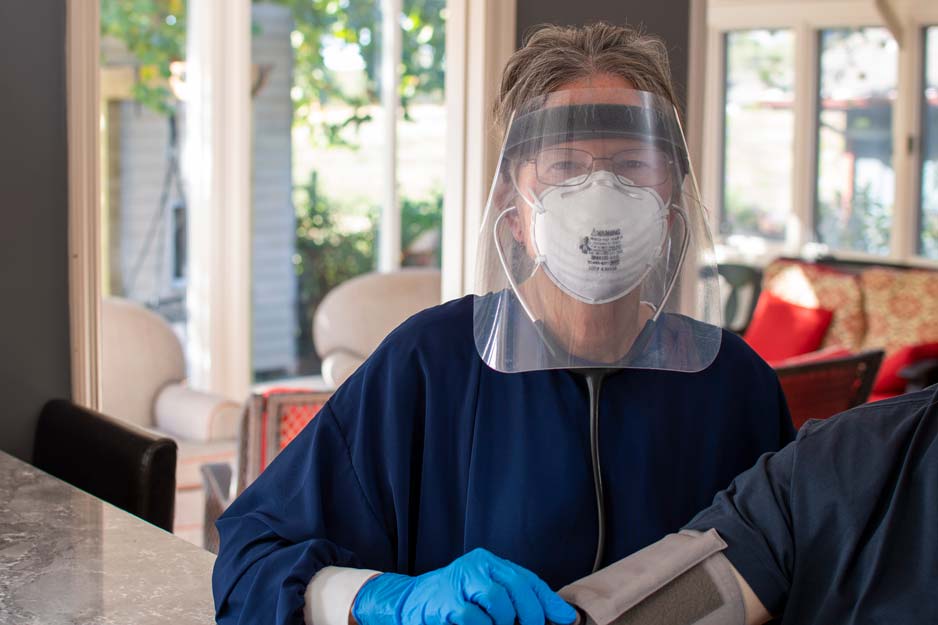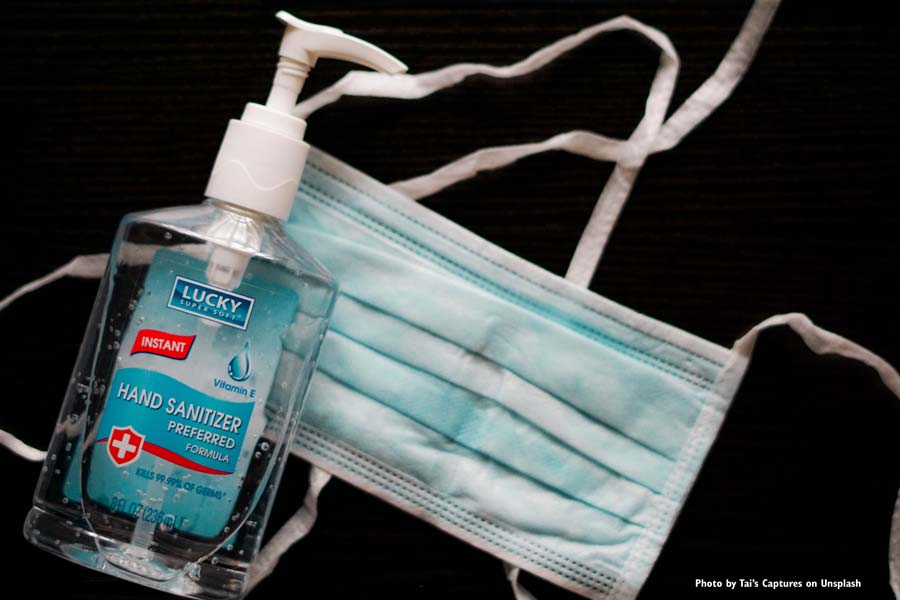In-home services encompass many different types of care. Homecare ranges from non-medical services like grooming and light housekeeping, offered through private duty services, to necessary medical care, offered through home health and hospice services. Many patients and caregivers rely on these services for themselves or their loved ones to keep them safe and healthy in their home.
The COVID-19 pandemic has made us all re-evaluate our inner circles, and homecare is no different. What if you have health or mobility challenges though? Do you depend on others coming in to provide meals or care? What if you have a surgery and need in-home physical therapy and nursing care to recuperate?
If this pandemic has taught us anything, it’s that life can throw us all kinds of unforeseen challenges. Homecare shouldn’t be one of those challenges. Homecare is comprised of a variety of services to help you maintain independence in the comfort of your own home. While some may feel trepidations inviting a caregiver into their home, it is important to understand that there are many actions you can take to keep you safe and give you peace of mind.
So, what should you be looking for to keep you and your loved ones safe from COVID-19?

Work with an organization that has a well-prepared infection control plan.
For someone in need of homecare services such as nursing, aide care, physical, occupational, speech therapy and beyond, a good homecare organization will have strict precautions in place. The CDC sets infection control guidelines within two categories, standard precautions and transmission-based precautions, for all direct service providers (DSPs). These are precautions that DSPs already have in place. A homecare organization’s policies and procedures are set on these standards of practice. These guidelines are in place to not only keep you and your family safe and healthy, but also to protect your homecare worker.
Some of these practices include tracking daily temperature, wearing N95 respirators that have been fit-tested to individual clinicians, handwashing or sanitizing upon entering the patient’s home, socially distancing when able and using proper infection control protocols when working with a patient. These practices should occur both in and out of the patient’s home with procedures such as wiping down medical equipment with proper disinfecting agents after each visit. Infection control protocol is immensely important and taken very seriously. If you have questions about this protocol, either an organization representative or your clinician should be able to answer those questions or ease your concerns.

What guidelines should YOU follow?
Direct service providers (DSPs) have close and consistent contact with their patients. DSPs are essential for the health and well-being of the patients they serve, and therefore are at the same general risk category as any other health care personnel. While you might not need to follow the stringent guidelines your DSP follows, you are a big piece to the puzzle as we try to stop the spread of the virus, and there are important precautions you should follow.
Wear a mask when working with your provider. In studies, masking has shown to be an important part of stopping droplet spread. Wash your hands with soap for at least 20 seconds, or use at least 60% alcohol-based hand sanitizer. Washing/sanitizing all parts of your hands and fingers is important. Cleaning and disinfecting is also important, including but not limited to counters, tabletops, doorknobs, bathroom and kitchen fixtures, toilets, phones and keyboards. Also, consider disinfecting your durable medical equipment (DME). Items like walkers, scooters, wheelchairs, canes, oxygen tanks and tubing that are touched often need regular disinfecting too.
If you are able, get vaccinated. Douglas County has done an excellent job organizing clinics. For those unable to leave their home to be vaccinated, Douglas County Visiting Nurses Association (VNA) is working with Lawrence-Douglas County Public Health to coordinate in-home vaccinations. Lastly, monitor your symptoms. If you have a fever or are not feeling well, call your homecare provider and postpone your visit. It is always better to be safe than sorry.

How can you cope with stress?
It is important to take care of both your physical and mental health. Maintaining healthy behaviors helps to manage stress, which in-turn helps keep you healthy. Take deep breaths, stretch or meditate. Eating well-balanced meals is important, as is getting plenty of sleep. If you are feeling stressed or anxious, talk to your homecare provider about it. You might be surprised of the tricks they have up their sleeves to help with your stress level. Lastly, if you are able, exercise is a great way to encourage serotonin production, studies suggest. Just a little movement can make you feel great and reduce stress levels. VNA even offers free exercise bands (call 785-843-3738 or emailThis email address is being protected from spambots. You need JavaScript enabled to view it. to request a set) and a chair-exercise video you can follow along to. The video can be viewed below.
Your health is one of your most valuable assets. The variety of services homecare provides can be integral in maintaining that asset. Working with caregivers you trust and rely on can provide you comfort and independence, even in this trying time.
Lori McSorley
Business Development Manager
Douglas County Visiting Nurses Association